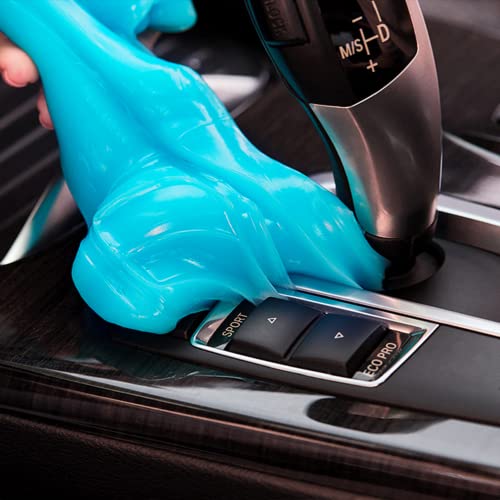Auto Lease vs Purchase Calculator: Compare Your Options
Determine whether leasing or buying a vehicle makes more financial sense based on your driving habits and budget.
Vehicle Information
Lease Parameters
Purchase Parameters
Ownership Costs
List of the Top 10 Best Essentials for Your Car:
Understanding Lease vs Purchase
Choosing between leasing and buying a vehicle involves comparing short-term costs with long-term value. Our calculator helps you see the complete financial picture based on your specific situation.
Key Differences Between Leasing and Buying
Leasing Advantages
- Lower monthly payments
- Drive newer vehicles more often
- Lower repair costs (under warranty)
- No resale hassle
- Potential tax benefits for business use
Buying Advantages
- Ownership equity
- No mileage restrictions
- No lease-end charges
- Can customize vehicle
- Lower long-term costs
Leasing Considerations
- Mileage limits (typically 10k-15k/year)
- Wear-and-tear charges
- No ownership at lease end
- Continuous payment cycle
- Higher insurance requirements
Buying Considerations
- Higher monthly payments
- Responsibility for maintenance
- Depreciation risk
- Resale/trade-in process
- Longer commitment to vehicle
When Leasing Typically Makes Sense
1. Lifestyle Factors
- You prefer driving new cars every 2-3 years
- You drive average or below average miles
- You want predictable monthly costs
- You maintain vehicles in excellent condition
2. Financial Factors
- You can deduct lease payments for business
- You prefer lower monthly payments
- You don't want repair risk after warranty
- You have stable income but limited savings
When Buying Typically Makes Sense
1. Lifestyle Factors
- You drive high annual mileage
- You prefer long-term vehicle ownership
- You want to customize your vehicle
- You maintain vehicles for 5+ years
2. Financial Factors
- You want to build equity
- You can afford higher monthly payments
- You have cash for substantial down payment
- You want to eliminate car payments eventually
Frequently Asked Questions
Is it better to lease or buy a car?
The better option depends on your circumstances:
- Leasing is better if you want lower payments, enjoy new cars frequently, and drive average miles
- Buying is better if you drive high miles, want ownership equity, and keep cars long-term
- Financially, buying usually costs less over 5+ years
- Leasing provides more flexibility and predictable costs
How is a lease payment calculated?
Lease payments consist of three components:
- Depreciation: (Vehicle price - residual value) ÷ lease term
- Interest: (Vehicle price + residual value) × money factor
- Taxes: Payment portion subject to local taxes
- Plus any fees (acquisition, disposition, etc.)
What is the biggest disadvantage of leasing?
Key leasing disadvantages include:
- No ownership equity at lease end
- Mileage restrictions with hefty overage fees
- Wear-and-tear charges for excessive damage
- Continuous payment cycle (no end to car payments)
- Higher insurance requirements typically
Can you negotiate a car lease?
Yes, several lease terms are negotiable:
- Vehicle price (capitalized cost)
- Money factor (interest rate)
- Mileage allowance
- Upfront fees
- Residual value is usually fixed by lessor
What happens at the end of a car lease?
Lease-end options typically include:
- Return the vehicle (may owe disposition/mileage fees)
- Purchase the vehicle at residual value
- Lease a new vehicle (often with loyalty incentives)
- Early termination usually has significant penalties
How does leasing affect insurance costs?
Leasing typically requires:
- Higher coverage limits than state minimums
- Gap insurance (often included in lease)
- Lower deductibles (typically $500 or less)
- 10-20% higher premiums than owning
Can you get out of a car lease early?
Early lease termination options:
- Lease transfer: Someone assumes your lease
- Early buyout: Pay remaining payments + residual
- Dealer negotiation: Some may allow early exit for new lease
- Default: Severe credit impact and collections
Is leasing a car a waste of money?
Leasing isn't inherently wasteful:
- You pay for vehicle depreciation during use
- Similar to renting vs buying a home
- Can make sense if you value new cars and flexibility
- Wasteful only if you don't utilize lease benefits
How much should I put down on a lease?
Lease down payment recommendations:
- Minimum required by lessor (often $0-$3,000)
- Enough to cover upfront costs (taxes, fees)
- Avoid large down payments (money lost if car totaled)
- Multiple security deposits may lower money factor
What credit score is needed to lease a car?
Typical leasing credit requirements:
- Prime: 700+ for best rates
- Near prime: 620-699 with higher costs
- Subprime: Below 620 rarely approved
- Leasing generally requires better credit than buying
Additional Resources
- Lease Contract Terminology Guide
- Auto Loan Amortization Calculators
- Vehicle Depreciation Charts
- Lease-End Inspection Checklists
- Auto Financing Comparison Tools
![LISEN Retractable Car Charger 4 in 1 [69W USB C Car ChargerAdapter] for iPhone 16 Car Charger Fast Charging, Gifts for Women Men, Car Accessories USBC Car Charger for iPhone 16 15 14 13 12, Gray](https://m.media-amazon.com/images/I/41l3VqtfD-L._SL500_.jpg)

![200W Car Power Inverter, PiSFAU DC 12V to 110V AC Car Plug Adapter Outlet with [20W USB-C] /USB-Fast Charger(18W) / 4.8A Dual USB/car Charger for Laptop](https://m.media-amazon.com/images/I/41TnIJVNvzL._SL500_.jpg)






